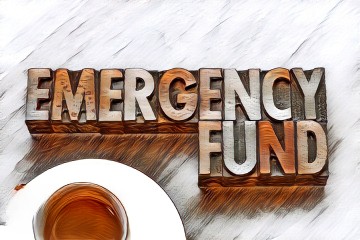Grade 10 Lesson 5: #Emergency Fund
Have you ever heard of an "emergency fund"? It's a fancy term for a type of savings that can come in handy when life throws you a curveball. In this lesson, we'll talk about what emergency funds are, why they're important, and how you can start one today. So, let's get started!
An emergency fund is a type of savings account that you set aside specifically for unexpected expenses or emergencies. This could be anything from a flat tire on your bike, to a broken arm that needs to be cast, to a family member who falls ill and needs medical care. The idea is to have money saved up that you can use in case of an emergency, so you don't have to worry about dipping into your other savings or taking on debt.
Why is an emergency fund important?
An emergency fund is important for a few reasons. First, it gives you peace of mind knowing that you have a safety net in case something unexpected happens. This can help you feel more secure and less worried about how you'll pay for an emergency expense. Second, an emergency fund can help you avoid taking on debt. If you don't have an emergency fund and something unexpected happens, you might be tempted to put the expense on a credit card or take out a loan. This can lead to more debt, which can be hard to pay off and hurt your credit score. Finally, an emergency fund can help you stay on track with your other financial goals. If you have an emergency fund, you can use it to pay for unexpected expenses without dipping into your other savings, such as your college savings or your dream vacation fund. This can help you stay focused on your long-term financial goals.
How do you start an emergency fund?
Starting an emergency fund is easy, and it's never too early to start! Here are some tips to get you started:
1. Set a goal. Figure out how much money you want to have saved in your emergency fund. A good rule of thumb is to aim for three to six months' worth of living expenses.
2. Open a savings account. Choose a savings account specifically for your emergency fund. This can be a regular savings account or a high-yield savings account.
3. Automate your savings. Set up automatic transfers from your regular account to your emergency fund account. This can help you save consistently and reach your goal faster.
4. Be patient. Building an emergency fund takes time, so be patient and keep contributing to it regularly.
Why is it important to understand emergency funds?
Understanding emergency funds is important because they're a key part of being financially prepared. By having an emergency fund, you'll be better equipped to handle unexpected expenses and emergencies, which can help you feel more secure and confident about your finances.
Emergency funds can also help you avoid taking on debt and keep you on track with your other financial goals. By knowing what an emergency fund is and how to start one, you'll have a solid foundation for your financial future.
In conclusion, an emergency fund is an important tool for financial security and peace of mind. By understanding what an emergency fund is and why it matters, you'll be better equipped to handle unexpected expenses and emergencies, and stay on track with your financial goals. So, why not start building your emergency fund today?

@ayuecosystem #kids #education #financialliteracy #finance #EmergencyFund #FinancialSecurity #SavingsGoals #DebtAvoidance #FinancialPreparedness #MoneyMatters #SavingsTips #PeaceOfMind #FinancialFoundation